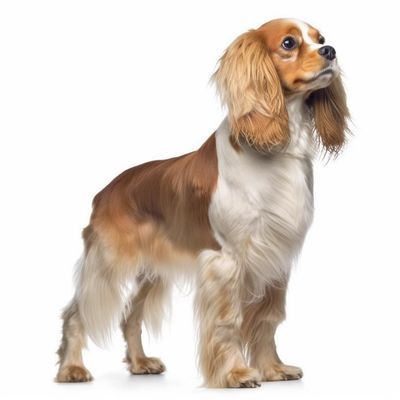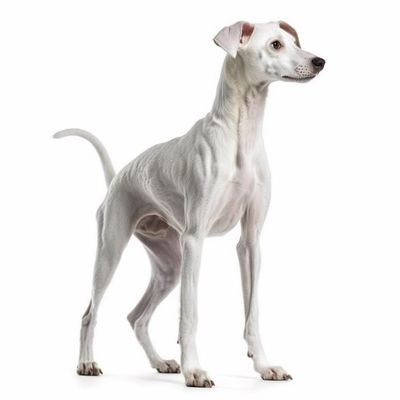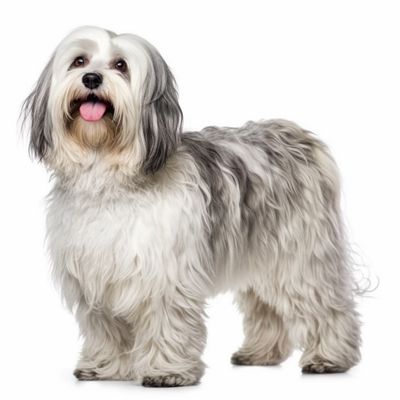Cavalier King Charles Spaniel - vs - Italian Greyhound - vs - Havanese

Cavaliers have a moderate energy level and enjoy a mix of playtime and relaxation.
Cavaliers need daily exercise, such as walks or playtime, to stay happy and healthy.
Cavaliers are eager to please and can be trained easily with positive reinforcement.
Cavaliers are intelligent dogs that enjoy learning new commands and tricks.
Cavaliers adapt well to various living situations, from apartments to country homes.
Cavaliers are gentle, affectionate, and patient, making them excellent companions for children.
Cavaliers get along well with other pets, including dogs and cats, when socialized properly.
Cavaliers can tolerate mild cold but need extra care in extreme cold due to their silky coats.
Cavaliers can handle warm climates, but make sure to provide shade, water, and avoid excessive exercise.
Cavaliers have a silky coat that sheds moderately, so regular brushing can help minimize shedding.
Cavaliers require regular brushing and occasional bathing to keep their coats healthy and tangle-free.
Cavalier King Charles Spaniels bark occasionally, usually only when necessary or provoked.
Cavalier King Charles Spaniels may have some health issues, requiring regular veterinary checkups and preventative care.

Italian Greyhounds are small dogs, weighing 7-14 lbs, with a height of 13-15 inches.
Italian Greyhounds have a medium energy level, enjoying bursts of activity but also appreciating relaxation time.
Italian Greyhounds need regular exercise, including daily walks and opportunities to run off-leash in a securely fenced area.
Italian Greyhounds are intelligent and trainable, but they can be independent thinkers. Consistent, positive reinforcement is key.
Italian Greyhounds are highly intelligent dogs and can excel in various dog sports and activities, especially those involving speed.
Italian Greyhounds can adapt well to different living situations, including apartments and larger homes, as long as their exercise needs are met.
Italian Greyhounds can be okay with children, but their slender build makes them more susceptible to injury. Supervision and proper handling are important.
Italian Greyhounds can get along well with other pets, especially when raised together. However, their prey drive may require caution around smaller animals.
Italian Greyhounds can tolerate colder temperatures, but their short coats and lean bodies require proper protection during extreme cold.
Italian Greyhounds can tolerate hot climates but need to be monitored for signs of overheating during exercise.
Italian Greyhounds have a short coat and shed minimally, making grooming relatively easy.
Italian Greyhounds require minimal grooming, including occasional brushing and bathing to keep their coats clean and healthy.
Italian Greyhounds bark occasionally, usually only when necessary or provoked.
Italian Greyhounds are generally healthy, but regular veterinary checkups and preventative care are still necessary.

Havanese dogs are small-sized, standing 8.5-11.5 inches tall and weighing 7-13 lbs.
Havanese have a moderate energy level, enjoying playtime and daily walks.
Havanese require low to moderate exercise, including short daily walks and indoor or outdoor playtime.
Havanese are intelligent, eager to please, and respond well to positive reinforcement, making training relatively easy.
Havanese are intelligent dogs with a natural curiosity and problem-solving skills.
Havanese are highly adaptable and can thrive in various living situations, including apartments and homes with yards.
Havanese are gentle, affectionate, and playful, making them excellent companions for children.
Havanese typically get along well with other dogs and pets, especially when socialized from an early age.
Havanese can tolerate colder climates, but they prefer moderate temperatures and need to be protected from harsh weather conditions.
Havanese can tolerate warmer climates, but they should be provided with shade, water, and limited exercise during the hottest parts of the day.
Havanese have low shedding coats, making them a good option for people with allergies.
Havanese require regular grooming, including brushing every few days and occasional baths to keep their coats clean and tangle-free.
Havanese have average bark tendencies and may bark for various reasons, such as alerting their owners or during playtime.
Havanese are generally healthy, but regular veterinary checkups and preventative care are still necessary.



